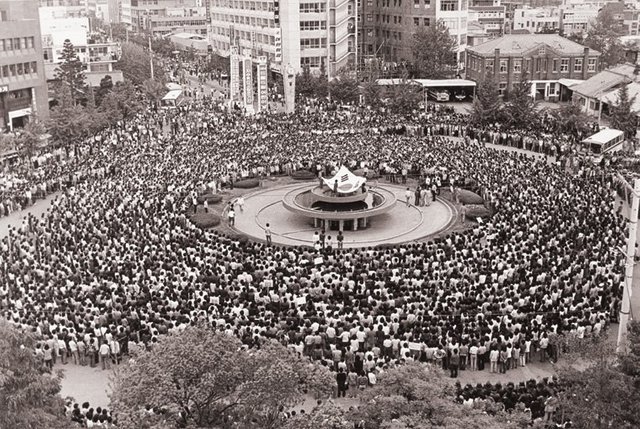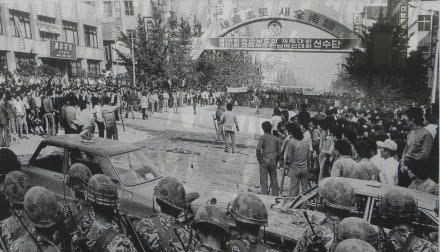Guangzhou Uprising: A bloody spring that changed the history of South Korea
Guangzhou is a mountainous metropolitan city in southwestern Korea. It is located at the foot of Mudiung Mountain at an altitude of 3,694 feet. Administratively a province is administered directly under the central government with equal status. Guangzhou has been considered an important region of the Korean Peninsula since ancient times. The history of regional deprivation and struggle of its inhabitants began under the Japanese Empire (1910-1945).
Today, Koreans proudly remember the bloody coup in Guangzhou in the history of modern South Korean democracy. The 1980 uprising in Guangzhou, not just in South Korea, had a profound effect on East Asian politics. Inspired by this, students and people organized and started a movement against the military dictators in the country. Dictatorships fell in many countries.
*In the morning
The first president of the Republic of Korea was Singman Ray. During his eighteen years in power, he carried out extreme persecutions, especially on political opponents and the Korean people in general. In the early 1980s, students in that country led mass protests against him. He was ousted in April 1980. For a few months, the country was governed by a parliamentary system.
In May 1971, General Park Chung-hee seized power in a military coup. The following year he became president. Park also ruled South Korea for eighteen years. In the 1982 US Constitution, he gave the president vast powers. Constitutionally, South Korea became a de facto dictatorship. Even during Park's rule, political opponents were subjected to repression.The Park government maintains its absolute authority by depriving the people of their individual freedoms, controlling newspapers and universities. He was finally assassinated on October 26, 1969, while visiting a brothel in Seoul, with the support of the United States. Central Intelligence Agency Director Kim Jong-un killed Park.
Subsequently, on May 16, 1969, Brigadier General Chun Du-hwan seized power by an internal coup. General Chun imposed a nationwide regime. Police were sent to the homes of pro-democracy political opponents and university student leaders to warn them. Among his targets were leaders of student organizations at Chonnam University in Guangzhou.March 1980. The new semester has started at Chonnam University. Professors and students who were banned from campus for political reasons during the Park's rule have begun to return. In the meantime, they called for political reform. Their demands included ensuring freedom of the press, ending martial law and introducing a transparent and fair electoral system.
On May 15, an estimated 100,000 students marched on Seoul Station demanding political reform. Two days later, on May 17, General Chun announced the closure of newspaper offices and universities. Hundreds of student leaders were arrested. 26 leaders and activists of opposition political parties were arrested. Among them was Kim De-jang, the son of Guangzhou.

